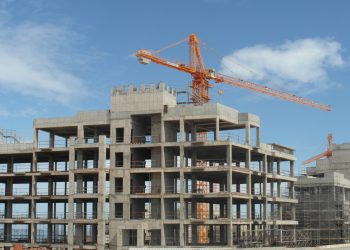Leading Libyan businessman Husni Bey told Libya Herald that the economic reality in Libya is limited resources, liquidity challenges, inflation, and the need for immediate monetary base restructuring.
He said Libya is a country suffering from accumulated economic crises, evident in a clear misunderstanding of its financial resources, and the resulting impacts on the exchange rate of the dinar and inflation.
The Reality of Libya’s Financial Resources
Bey said many Libyans believe that the country’s resources are unlimited and that the Central Bank of Libya has the capacity to fully cover government spending. However, the reality shows that the state’s resources are limited, and government deposits at the Central Bank are known and tied to its actual resources. Moreover, the actual dinars held by the Central Bank do not exceed its capital, estimated at only 1 billion dinars. The rest of the dinars are nothing but “money creation to cover monetary deficits.”
Funding the Deficit and Its Impact
He explained that when the Central Bank resorts to funding the government deficit through creating new money, a process called “monetary financing of the deficit,” this option comes at a high cost: the loss of the dinar’s purchasing power and rising inflation rates, leading to excessive price increases.
Criticisms and Risks
Bey said he rejects the idea that government resources and the resources of the Central Bank of Libya are unlimited. The truth is that any financing of a budget deficit results in inflation, which citizens pay for directly—either through rising prices or the collapse of the national currency’s value.
In the same context, talk about the resignation of the Central Bank governor reflects the level of pressure and challenges faced, especially considering the failure of current economic policies.
Reform Options
To address this crisis, Bey said the Central Bank’s Board of Directors has two main options:
Option one:
Be transparent with the people, explaining the economic situation openly, considering that not accepting the truth could lead to a greater collapse, characterized by hyperinflation and a breakdown of the exchange rate.
Option two:
Work on unifying the budget and public spending, reducing dependence on unplanned expenditures—particularly on salaries, fuel derivatives, subsidies, and operational expenses—which together exceed 174 billion dinars. There is also a need to allocate real resources to the development sector, including oil, gas, electricity, and infrastructure.
Liquidity Problems and Their Causes
The liquidity shortage is not new, Bey explained. He said it has recurred since 1980 and peaked in 2017 when 1,000-dinar cheques were exchanged for 700 dinars in cash (a 40% discount). The disappearance of the cash and liquidity is due to the structure of the present monetary base and the dynamics of the Central Bank—especially regarding the amount of debt owed to the public, holders of cash notes, and the legally required reserve (30%, roughly 31 billion dinars).
The reserve held, he explained, unfortunately exceeds 59% or over 50 billion dinars, the reserve being over the legal limit by 65%, an excess or additional 19 billion dinars held as reserves by commercial banks at the Central Bank.
The increase in frozen reserves by 19 billion making part of the monetary base thus exceed 50%, has led to a liquidity shortage, causing a loss of trust between banks and clients, undermining a healthy monetary cycle, and encouraging defensive behaviour in the financial system.
Proposed Solution
Bey says experts call for the restructuring of the monetary base, which has become an urgent necessity. This simply means changing the composition of the monetary base on which the Central Bank relies to create money, reducing dependence on the frozen additional reserves, and enhancing its role in injecting targeted liquidity into vital sectors—not just to cover cash withdrawals.
Possible Measures
Bey says the possible measures are: To encourage banks to invest their deposits effectively, with temporary sovereign guarantees, to liberalize the exchange rate to reduce speculative demand for foreign currency, and to relieve pressure on the dinar.
Summary
In summary, Bey says inflation and the collapse of the dinar can only be stopped by ending the fiscal deficit and refraining from financing it through monetary finance means: new money issuance.
Restructuring the monetary base is essential, as it is key to improving liquidity and stabilizing the availability of cash and currency.
Bey says these challenges require collective awareness and bold measures to ensure real economic stability that benefits the people and rebuilds trust in the national economy.
As we can read from very recent developments, he points out, it seems the Central Bank of Libya has already begun reforms through the restructure of the monetary base in 2025. That’s why we saw a relative cash easing before the Eid al-Adha holiday.









